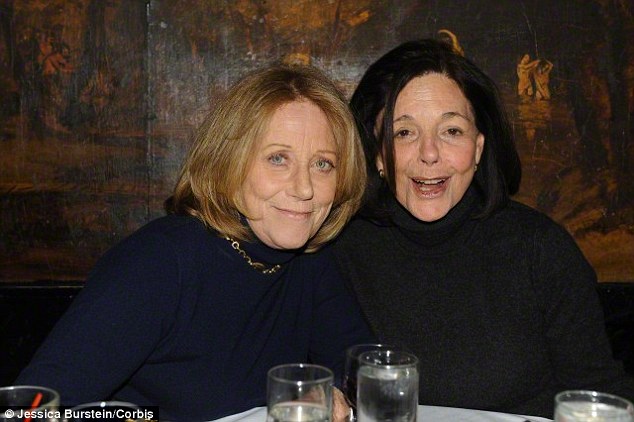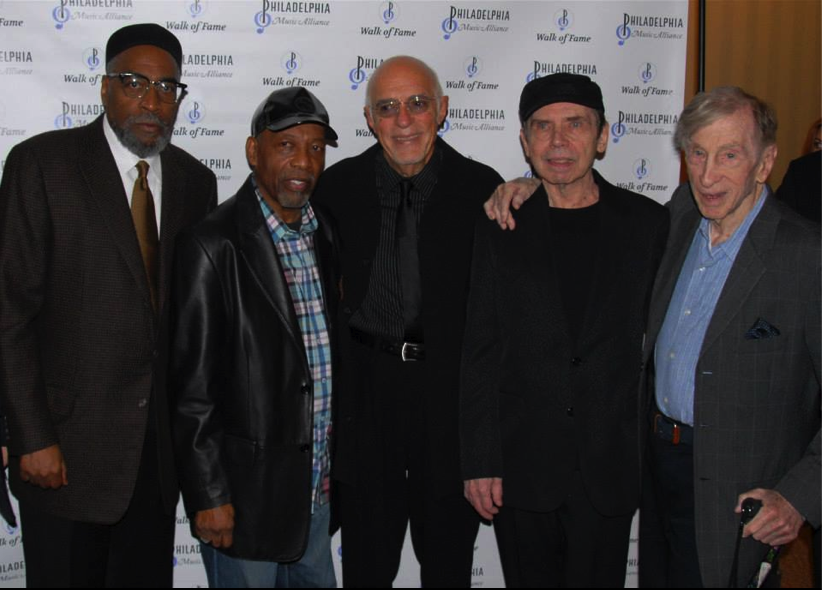
“You Don’t Own Me” by Lesley Gore, 1963
The Brill Building in Manhattan is famed for being the place where some of the most beloved songs in American pop music were written and was considered the home of the American music industry in the early ‘60s. Mainly occupied by white males, Lesley Gore and her producer Quincy Jones were a refreshing, revolutionistic breeze.

Gore, born Lesley Sue Goldstein, grew up in a Jewish family in Brooklyn with dreams of being a singer. While in high school, her vocal coach recorded a demo featuring her vocals and a piano. This tape fell into the hands of Quincy Jones, who was working in A&R and Mercury Records. Jones soon became her producer, mentor, and friend.

Lesley Gore had her first number one single before she turned 18, “It’s My Party (And I’ll Cry If I Want To)”. After the success of their first single together, Jones became the first African American vice president at Mercury Records and had multiple singles with Gore that was sold over a million copies each. Although best known for his work with Michael Jackson, it’s clear that Lesley Gore was the one to raise him to fame.

It is not sure if young Gore knew what part “You Dont Own Me” would have in the feministic revolution or whether or not she even knew what feminism was back then. Some would say Mercury Records company might have used her as a provocative commercial move for themselfs.
In an interview on WHYY’s Fresh Air in 1991, Gore recalled: “At the time, I know I chose it because I know I liked the strength in the lyric,” she told host Terry Gross. “But, for me, it was not a song about being a woman. It was about being a person, and what was involved with that. Of course, it got picked up as an anthem for women, which makes me very proud.”
Listen to the archived recording of the interview here:
https://freshairarchive.org/segments/lesley-gore-discusses-her-life-and-career
While her songs were all about men, it’s important to mention that Gore was a lesbian- in a time when it was taboo to not live a heteronormative lifestyle. Through many years in the public eye, Gore never made her sexual identity publicly known. Only by the time she hosted a series on gay and lesbian issues on the PBS series, In the Life beginning in 2004, she officially came out.
Gore and her partner Lois Sasson were together for more than 30 years, till death set them apart…

Was the song even written as a feministic anthem?
This “moxie” tune, not many knows, was written by two men, John Madara and David White, who were sick of how much music for female singers of that time involved mooning over guys. Instead they wanted to write about a girl telling a guy off. Gore, who sang mostly about boys – getting dumped by boys, getting attention from boys – all standard stuff for girl singers of the era, craved more challenging material.
(Second from the left is David White, John Madara in the middle)

“This was a song that allowed me a little bit more freedom vocally”, says Gore, “The beauty of that song is that the verses start in a minor key, and then, when you go into the chorus, it goes into the major, and there’s such a sense of lift and exhilaration. After seeing how powerful that is, it became a method I’ve used on a number of occasions.”
In fact, the dramatic minor-to-major shift and the straight forward message speaks volume when delivered by the gentel voice and innocence of Gore. As if in purpose to creates such a dissonance, there’s in intersting depth to the gap between the stong statement and the a well-behaved young girl who perforems it, dressed in a classic dress, hair perfectly combed in a 60’s ‘flip hairdo’.
There it is, for your judgment.
An anthem is a song that gives language — loudly — to feelings we might not otherwise be able to express. Madara says the message of “You Don’t Own Me” is ultimately about empathy.
“Listen to what people have to say; be kind and loving to the people you come into contact with,” he says. “I think ‘You Don’t Own Me’ says that. It says- ‘Treat people fairly.'”
I don’t tell you what to say
I don’t tell you what to do
So just let me be myself
That’s all I ask of you
I’m young and I love to be young
I’m free and I love to be free
To live my life the way I want
To say and do whatever I please

More he says that the song is not just about boys and girls. He grew up in a multiracial Philadelphia neighborhood. He understood the song’s sensibility, as well as his participation in the civil rights movement.
“I saw how black people got treated.” he once said, “It was horrible, horrible. And my black friends, they got hit more than I got hit. They had billy clubs. They’d hit you across the legs. But the black guys got hit across the bodies. You know, those are things that you don’t forget.”

The statement was practically revolutionary when it came out. While Gore’s popularity fell due to the changing nature of pop music in the late ‘60s, her songs still hold true today:
In 2010, Gore told The Minneapolis Star-Tribune, “As I got older, feminism became more a part of my life and more a part of our whole awareness, and I could see why people would use it as a feminist anthem.”
Gore used it in a 2012 public service announcement urging women to vote, saying, “It’s hard for me to believe, but we’re still fighting for the same things we were then. Yes, ladies, we’ve got to come together. Get out there and vote and protect our bodies. They’re ours. Please vote.”
“You Don’t Own Me” was the ultimative pick for the anthem of the #MeToo movement of our days. The song is still so much of an anthem that all of the women of “Saturday Night Live” performed it on the one-year anniversary of the Women’s March and has been covered dozens of times over the last decades. Even Gore herself remade it in 2005, after a 23-year break from recording, as part of her last masterpiece “Ever Since”.
Leslie Gore died at the age of 68 from lung cancer in February 2015, only a month before the 17-year-old Australian singer Grace and American rapper G-Eazy released their rap version of the song, which was also produced by Quincy Jones. The Grace-G-eazy version reached first place on the ARIA charts, peaked at #4 on the UK Singles Chart, and is featured in the the soundtrack of the film “Suicide Squad”.
“Woah, let’s go
But I’m Gerald and I can always have just what I want
She’s that baddest I would love to flaunt
Take her shopping, you know Yves Saint Laurent
But nope, she ain’t with it though
All because she got her own dough
Boss bossed if you don’t know
She could never ever be a broke ho
Really though, honestly
I get bored of basic bitches
She’s the baddest, straight up vicious, texting her and asking her
If she’s alone and if she’d sent some pictures, she said no (what)
Well goddamn, she said come over and see it for yourself
Never asking for your help, independent woman
She ain’t for the shelf
No, she’s the one
Smoke with her till the weed is gone
Stayin’ up until we see the sun
Baddest ever, I swear she do it better than I’ve ever seen it done
Never borrow, she ain’t ever loan
That’s when she told me she ain’t never ever ever ever gonna be owned…
Back in 1964 a woman’s independence and sexual liberty turned men off and was thought more of an aberration. In the modern version G-Eazy shares his admiration to Grace, describes her as “the baddest” and “independent woman, she ain’t for the shelf”. These lyrics, spoken by a man who is dazzled by the strength of a woman, reflect on the tremendous change in western perception of what is attractive about a woman. It’s empowering assertiveness in young women, encouraging them to take responsibility over their own life, not only because its their given right but aslo because its desired and appreciated rather than condemned.

It would be naive to say we’ve made it. Although society have made big steps toward equality in the past few decades we shall never stop standing on our rights until no woman is mistereated anywhere in the world!
Refrences:
https://www.npr.org/2019/06/26/735819094/lesley-gore-you-dont-own-me-american-anthem
https://elenapougin.com/2020/04/17/you-dont-own-me-by-lesley-gore-whats-left-of-this-feminist-anthem-of-the-sixties/
https://www.wbur.org/npr/735819094/lesley-gore-you-dont-own-me-american-anthem#lik
https://joanvosmacdonald.com/you-dont-own-me/
https://en.wikipedia.org/wiki/Lesley_Gore#:
https://www.libertarianism.org/publications/essays/you-dont-own-me
https://www.heyalma.com/lesley-gore-the-jewish-feminist-lesbian-pop-star-ahead-of-her-time/
http://www.sundialpress.co/2020/05/12/you-dont-own-me-by-lesley-gore-whats-left-of-the-sixties-feminist-anthem/
Published: Mar 24, 2021
Latest Revision: May 26, 2021
Ourboox Unique Identifier: OB-1087295
Copyright © 2021








